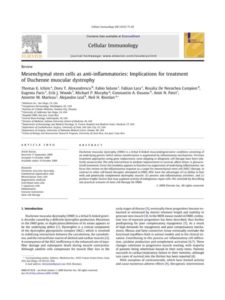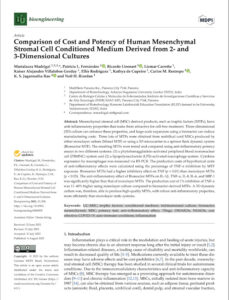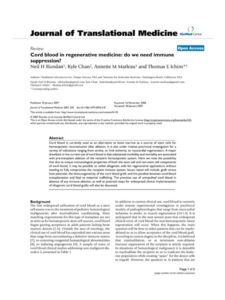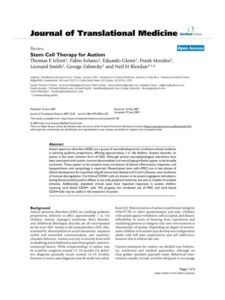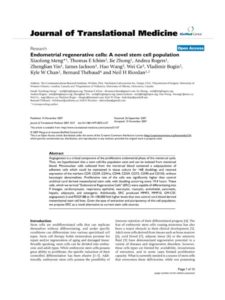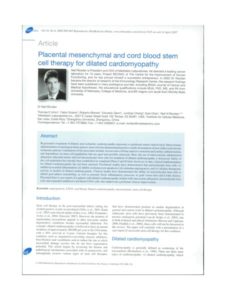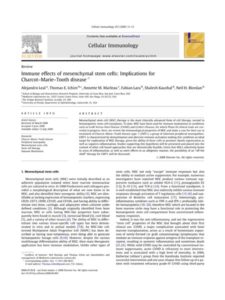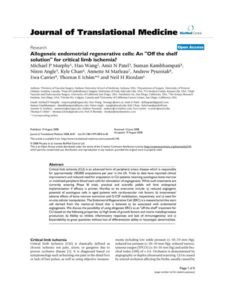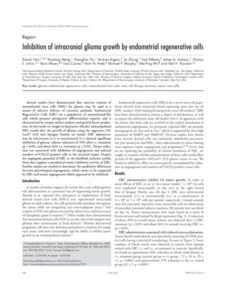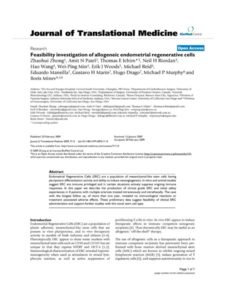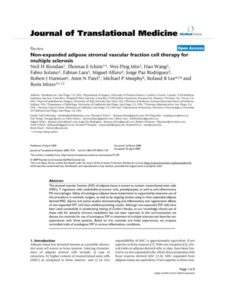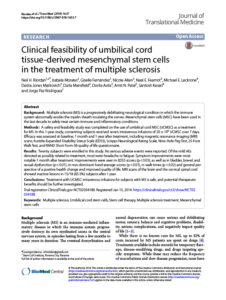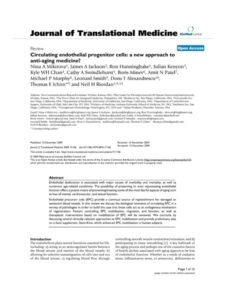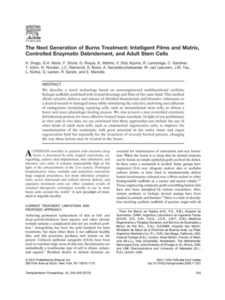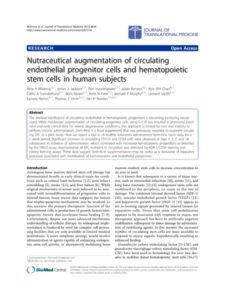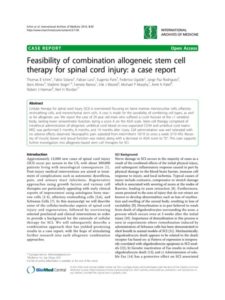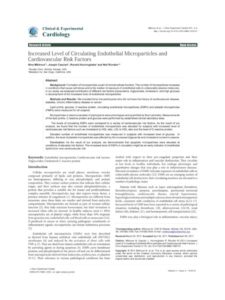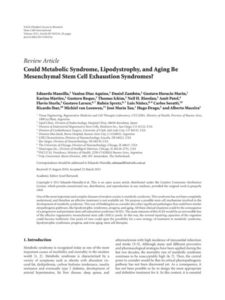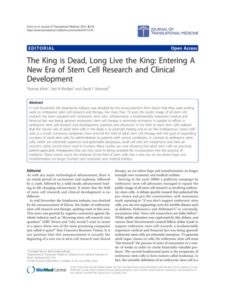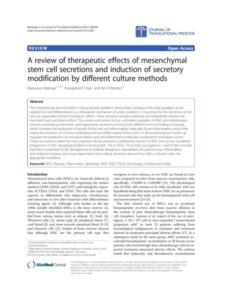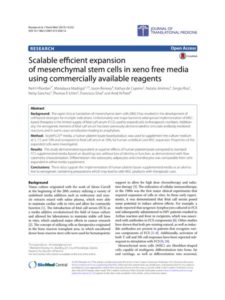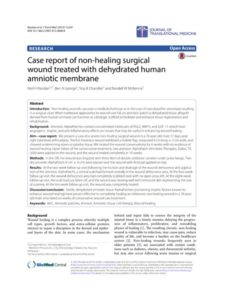Outstanding survival and regeneration process by the use of intelligent acellular dermal matrices and mesenchymal stem cells in a burn pig model.
Transplant Proc. 2010 Dec;42(10):4275-8.
Mansilla E, Spretz R, Larsen G, Nuñez L, Drago H, Sturla F, Marin GH, Roque G, Martire K, Díaz Aquino V, Bossi S, Gardiner C, Lamonega R, Lauzada N, Cordone J, Raimondi JC, Tau JM, Biasi NR, Marini JE, Patel AN, Ichim TE, Riordan N, Maceira A.
Abstract
A pig model with a deep large burn was used to study the regeneration process induced by mesenchymal stem cells (MSCs) and acellular pig dermal matrices, made intelligent by the combination with biodegradable nanofibers loaded with growth factors (granulocite-macrophage colony-stimulating factor and epidermal growth factor) and coated with the anti-CD44 monoclonal antibody (intelligent acellular dermal matrices, IADMs). These IADMs are specially designed to integrate in the wound bed as new biological scaffolds as well as to specifically recruit and attach circulating and/or externally applied MSCs through the anti-CD44 antibody while delivering precise amounts of growth factors. In this way, the reparative process as well as the aesthetic and functional results were enhanced in our burn model. The animal survived, the wound was completely closed, and total regeneration of the skin was obtained without much scarring. Surprisingly, hair follicles and other skin appendages developed despite the severity and deepness of the burn. Even burned muscles and ribs seemed to have undergone a regenerative process by the end of the study. Based on these findings, we have proposed the use of IADMs and autologous, allogeneic or xenogeneic MSCs, as a new paradigm for the future treatment of large burns and probably other dermatological and cosmetic human conditions.

